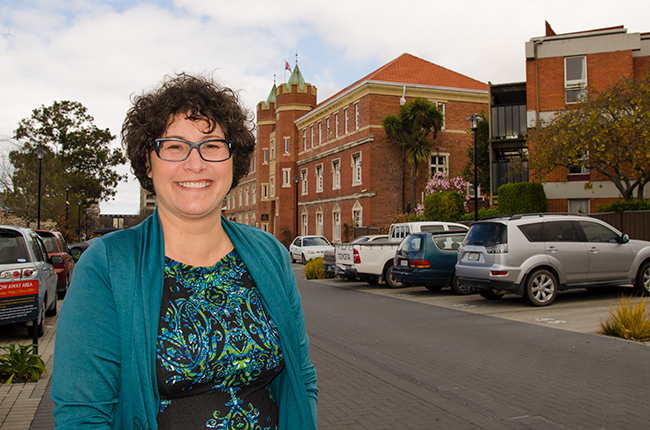Friday 21 September 2018 2:28pm

Dr Lisa Chant will discuss her Maraea Project at Te Tumu School of Māori, Pacific and Indigenous Studies today.
Indigenous perspectives and values provide important tools for discussing the complexities of substance misuse in children under 13, visiting AUT Senior Research Fellow Dr Lisa Chant says.
Today at Te Tumu School of Māori, Pacific and Indigenous Studies, Dr Chant (Ngāti Whātua) will outline the activities of the Maraea Project, a four-year study of indigenous community-based solutions for children aged under 13 years in New Zealand, Australia, USA and Canada who misuse substances.
“The study combines qualitative methods and integrates an indigenous narrative approach, and case studies, which are unique to the indigenous communities being studied,” she says.
Dr Chant will use video clips of Māori community health practitioners as a basis for discussion around the projects’ aims, and the relevance and usefulness of concepts such as whānau rangatiratanga (family self-determination) as tools leading to better health outcomes for children, and their communities.
How much of an issue is substance misuse in indigenous children?
Substance misuse is an issue for ALL children, including non-indigenous, in the four countries I am studying – but also globally. As the NZ media are now showing, this is a really concerning problem.
What is the situation in Aotearoa New Zealand?
Aotearoa New Zealand is similar to Australia, the US and Canada, which are lacking in services for children under 13 who misuse substances. There are, however, some efforts being made by indigenous communities in all four countries to address substance misuse issues by children, which they are willing to share with non-indigenous families and communities.
Your research is aimed at developing new knowledge and capacity to remedy substance misuse in indigenous children under 13 years – what are some provisional, concrete, suggestions for tackling this important issue?
It’s a four year project and I won’t have anything concrete until 2020. At this stage I’m looking at how in each of the countries there are quite different practices that are making positive gains. I’m talking to indigenous people happy to share their ideas and experiences with others through interviews on a website.
How might concepts of whānau rangatiratanga/family self-determination inform community-based solutions in New Zealand, Australia, USA and Canada?
Interestingly, so far most of the indigenous community-based solutions I have seen are in NZ. Australia and the US favour whānau rangatiratanga/family self-determination based systems. I visit Canada next.
